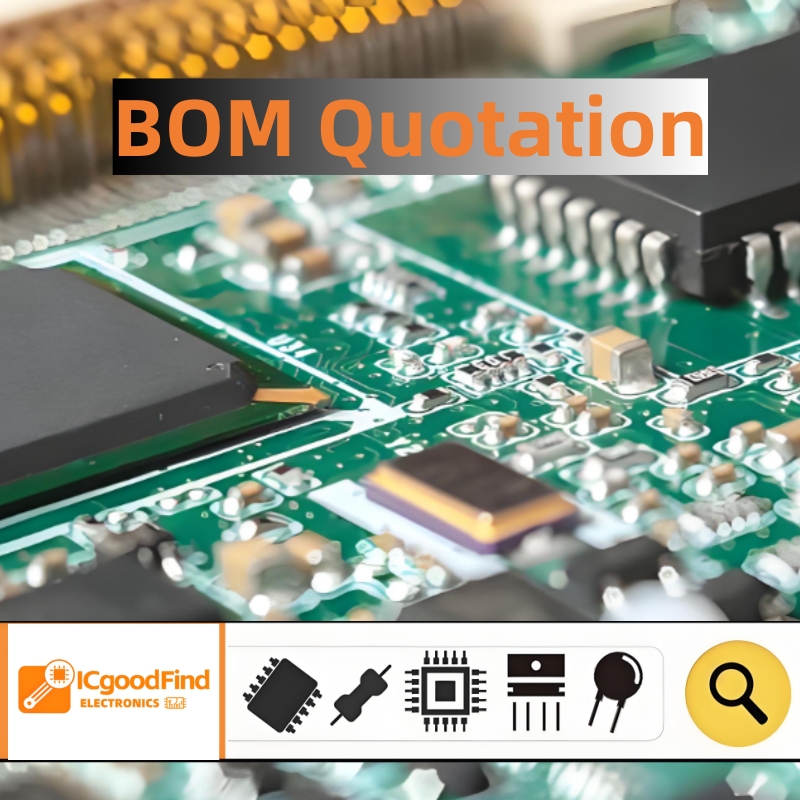**AD5248BRMZ50: A Comprehensive Guide to Microchip's 256-Position Digital Potentiometer**
In the realm of precision electronic control, the digital potentiometer stands as a crucial component, replacing traditional mechanical potentiometers with a solid-state, software-driven solution. Among these, the **AD5248BRMZ50 from Microchip Technology** represents a highly integrated and versatile option for designers. This article provides a comprehensive overview of this specific IC, detailing its key features, internal architecture, and typical applications.
The AD5248BRMZ50 is a **single-channel, 256-position digital potentiometer** configured in a 10-pin MSOP package. The "50" in its part number signifies a nominal end-to-end resistance of 50 kΩ, though it is part of a broader family with other resistance values. Its core function is to emulate a three-terminal mechanical potentiometer, but with a wiper position that is set digitally via a standard I²C serial interface instead of being turned by hand. This allows for **remote control and dynamic adjustment** of resistance values in a circuit without any physical interaction.
**Key Features and Specifications:**
* **256 Taps:** Provides high resolution for precise adjustment of voltage division or variable resistance.
* **I²C Compatible Interface:** Supports a simple two-wire communication protocol for easy interfacing with microcontrollers and other digital logic. It supports clock speeds up to 400 kHz (Fast-mode).
* **Non-Volatile Memory (Nv):** A critical feature where the **wiper setting is stored in EEPROM memory** upon command. This ensures the device powers up at its last known setting, eliminating the need for system recalibration after a power cycle.
* **Wide Operating Voltage:** Can be powered by a single supply from 2.7 V to 5.5 V, making it suitable for both 3.3 V and 5 V systems.
* **Low Tempco:** Exhibits a low temperature coefficient (35 ppm/°C typ. for the 50 kΩ version), ensuring stable performance across a wide temperature range.
* **Compact MSOP-10 Package:** Ideal for space-constrained PCB designs.
**Internal Architecture and Operation**
Internally, the AD5248BRMZ50 consists of a series of equal-value resistors connected in a ladder configuration. The wiper is connected to a tap point on this ladder through a solid-state switch. The I²C interface is used to send a data byte that determines which tap point the wiper connects to, effectively selecting one of the 256 possible positions. It can operate in two-terminal variable resistor or three-terminal rheostat mode. The inclusion of EEPROM cells allows the user to save the current wiper position, which is automatically recalled at power-on.
**Typical Applications**

This digital pot finds use in a vast array of applications where programmable resistance or voltage adjustment is required:
* **Programmable Gain Amplifiers (PGAs):** Used to set the gain of op-amp circuits dynamically.
* **Volume Control and Audio Level Adjustment:** Provides quiet, click-free attenuation in audio systems.
* **Sensor Calibration and Trimming:** Allows for automated, in-system calibration of sensor signals without requiring manual potentiometers.
* **Power Supply Adjustment:** Fine-tuning output voltages in DC-DC converters or voltage reference circuits.
* **Industrial Control Systems:** Used for parameter setting and offset adjustment in process control equipment.
**ICGOODFIND**
The **AD5248BRMZ50** is an excellent choice for engineers seeking a robust, non-volatile digital potentiometer solution. Its combination of **high resolution (256 taps), a simple I²C interface, and the crucial ability to remember its setting** via integrated EEPROM makes it superior to many volatile alternatives. It is particularly well-suited for applications requiring stable, set-and-forget operation after initial calibration or for systems that need to adjust parameters remotely without user intervention.
**Keywords:**
1. **Digital Potentiometer**
2. **I²C Interface**
3. **Non-Volatile Memory (EEPROM)**
4. **256-Position**
5. **Programmable Gain**
